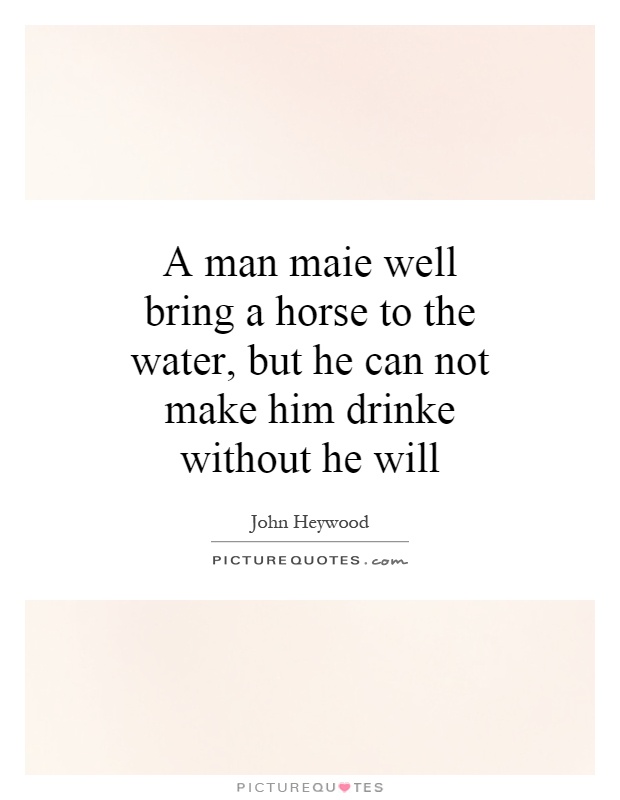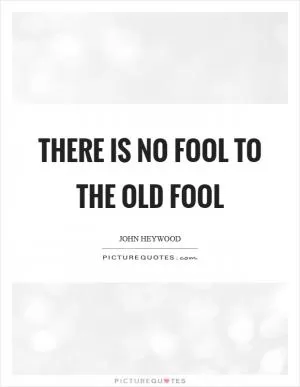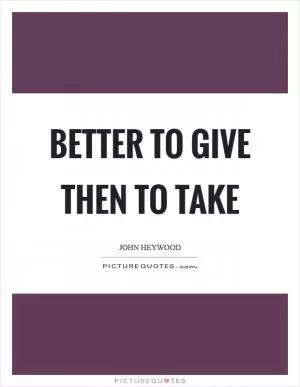A man maie well bring a horse to the water, but he can not make him drinke without he will

A man maie well bring a horse to the water, but he can not make him drinke without he will
The phrase "A man may well bring a horse to the water, but he can not make him drink without he will" is a proverb that has been attributed to the English playwright John Heywood. Heywood was a prominent figure in the English Renaissance and is best known for his collection of proverbs and epigrams, which were published in 1546.This particular proverb speaks to the idea that while one can provide opportunities or resources to someone, ultimately it is up to that individual to take advantage of them. In the case of the horse, the man can lead the animal to the water, but he cannot force it to drink. Similarly, in life, one can offer guidance, support, or advice to someone, but they must be willing to take action and make the most of those opportunities.
Heywood's proverbs often contain a moral lesson or a piece of wisdom that is meant to be thought-provoking and instructive. In this case, the proverb serves as a reminder that individuals have agency and free will, and that they must take responsibility for their own actions and decisions.
The idea that one cannot force someone to do something against their will is a timeless concept that is still relevant today. It speaks to the importance of personal autonomy and the power of choice. It also highlights the limitations of influence and control, as ultimately each person is responsible for their own choices and actions.
Overall, Heywood's proverb serves as a valuable reminder to respect the autonomy and agency of others, and to recognize that while one can provide support and guidance, ultimately it is up to the individual to take action and make decisions for themselves.












 Friendship Quotes
Friendship Quotes Love Quotes
Love Quotes Life Quotes
Life Quotes Funny Quotes
Funny Quotes Motivational Quotes
Motivational Quotes Inspirational Quotes
Inspirational Quotes